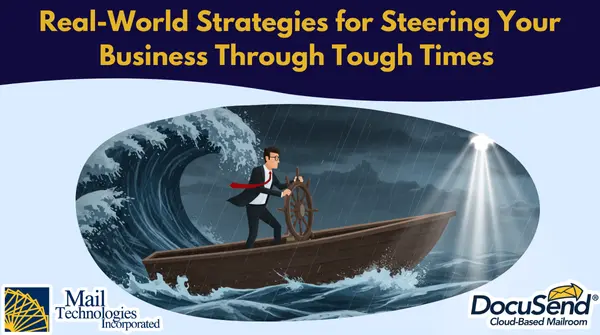Real-World Strategies for Steering Your Business Through Tough Times

Let’s be honest—no business owner really prepares for the moments when everything seems to cave in at once. You might have cash flow hanging by a thread, your inbox flooding with cancellation emails, and the kind of tense conversations with staff that feel more like eulogies than meetings. It’s in those moments, when the pressure squeezes from every direction, that you learn what kind of leader you really are. This isn’t some glossy LinkedIn post about “resilience” or a thread of bootstrap advice strung together by someone who’s never missed a payroll. This is about the hard-earned, gritty strategies that can keep your business alive when the world seems to be rooting against it.
Reframe the Situation Without Gaslighting Yourself
It’s tempting to slap on a smile and say, “We’ll be fine,” but false optimism won’t serve you here. You need clarity—not cheerleading. That starts by acknowledging the reality of what you’re facing without catastrophizing it. Ask yourself: What exactly is the problem? Is it a drop in revenue? A failed launch? A reputational hit? The more precise you are, the more equipped you’ll be to dissect the problem and make decisions that actually matter. This isn't about pretending things aren't hard; it’s about recognizing the difference between something being hard and being hopeless.
Sharpening Your Edge Through Education
When you're navigating a storm in your business, having a stronger foundation in strategy, finance, and decision-making can be the difference between survival and collapse. Earning a degree to enhance your business acumen gives you a deeper understanding of what your company truly needs, especially when resources are tight and every move counts. A business management degree builds skills in leadership, operations, and project management—core areas that become vital when you're steering through uncertainty. Online programs offering a bachelor of business management make it possible to keep learning while you continue running your business day to day.
Cash Flow Isn’t King—It’s Oxygen
You’ve probably heard “cash is king” so many times it’s practically background noise. But when your business is under siege, it’s more than king—it’s oxygen. Without it, everything suffocates. Now is the time to examine every single dollar going out and coming in. Cut deep, but cut smart. Don’t just slash expenses blindly; protect the systems and people that keep your operations running.
At the same time, aggressively pursue revenue—even the small, unsexy wins that don’t seem worth your time. They are. Even the wins that seem small will make a difference.
The DocuSend mailroom, for example, kept our document distribution process streamlined and cost-efficient during a critical month when every dime counted. Efficiency tools like that aren’t luxuries—they’re lifelines.
Communicate Like a Grown-Up
There’s a distinct difference between transparency and panic. Your team doesn’t need to hear you spiral, but they do deserve the truth. People are surprisingly capable of handling bad news when it’s shared with respect and clarity. Give your employees the dignity of knowing what’s happening and the agency to help where they can. That means regular check-ins, honest financial updates, and invitations to collaborate on solutions. Remember, silence breeds anxiety, and vague reassurances usually backfire. Treat your team like the adults they are—and they’ll often rise to the occasion in ways that will surprise you.
Stop Obsessing Over the Master Plan
Tough times shatter long-term roadmaps. You’ll need to pivot fast, but that doesn’t mean flailing. Instead of focusing on what you can’t control, zoom in on what you can. Maybe you can’t stick to the annual marketing strategy, but you can test a low-budget campaign this week. You can repackage an existing service. You can call ten loyal clients and ask what they need most right now. The point is to shift from macro to micro. Shrinking your scope isn’t giving up—it’s triage. You’ll rebuild the bigger vision later. Right now, you’re fighting to stay upright.
Protect Your Energy Like It’s Equity
When everything’s going sideways, burnout starts lurking in the corners like a mugger. Your energy becomes one of the few things you can truly control, so guard it like a hawk. That might mean stepping away from the computer at 6 p.m., saying no to a draining phone call, or taking a walk even when the to-do list is screaming. Rest isn’t laziness—it’s preservation. When you crash, everything else follows. You need to stay sharp enough to make hard calls and show up for your people. This doesn’t mean going on a vacation mid-crisis; it means carving out micro-moments to breathe so the machine doesn’t grind down completely.
Rethink the Word “Help”
You might think asking for help makes you look weak or desperate. It doesn’t. It makes you resourceful. This could mean renegotiating payment terms with a vendor, calling a fellow founder for advice, or reaching out to customers with a candid ask. You’ll be surprised how willing people are to help when you’re direct and humble. I once asked a client to prepay for six months of service with a discount—and they said yes, no hesitation. That move bought us time we didn’t have. You won’t get what you don’t ask for, and in hard times, bold requests can save your neck.
Find a Way to Win Small and Publicly
Morale is fragile in tough times. One way to keep it from fracturing completely is to find a win—even a modest one—and amplify it. Closed a sale? Share it with the team. Got positive feedback from a customer? Blast it in Slack. Had a smooth client onboarding? Take a moment to celebrate it like it’s a record-breaking IPO. These small wins won’t solve everything, but they remind people—including you—that the business is still alive and still capable of forward motion. When things feel bleak, momentum is your secret weapon. Use it.
When the storm passes—and it will—you’ll emerge with a new kind of scar tissue. You’ll carry the weight of the decisions you made, the people you kept, the ones you let go, and the moves that either worked or blew up in your face. But you’ll also carry resilience, focus, and a level of operational clarity you couldn’t have bought with a decade of peacetime. That’s the quiet dividend of hardship. You earn it not by surviving perfectly, but by showing up, day after day, ready to figure it out. One ugly, necessary decision at a time.

